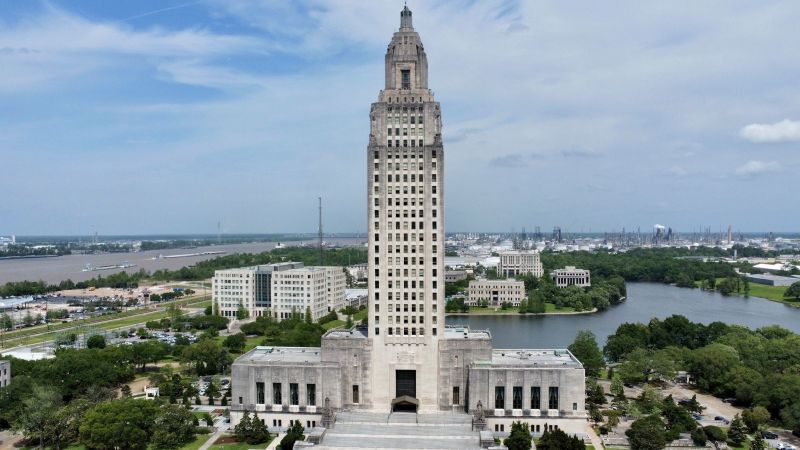In a recent ruling, a federal court invalidated a newly drawn congressional map in Louisiana that had created a second majority-Black district. The map was deemed unconstitutional due to being a racial gerrymander by US District Judges David Joseph and Robert Summerhays. An appeal to the US Supreme Court is likely, leaving the use of a new map for the upcoming elections in uncertainty. State officials have a deadline of May 15 to prepare for the fall elections and Democratic redistricting groups are planning to file for an emergency stay to keep the map in place. This ruling could potentially impact the balance of power in the US House, where Republicans currently hold the majority.
Following the 2020 census, Louisiana was among the states facing legal battles over redistricting. The creation of new districts with significant Black populations in Louisiana and Alabama were seen as victories by voting rights activists. The outcome of these redistricting battles could play a crucial role in determining control of the House, with experts suggesting that only a few seats make the difference in tipping the majority. The decision to strike down the newly drawn congressional map in Louisiana has further complicated the redistricting process and raised questions about the impact on the upcoming elections.
Louisiana’s GOP-controlled Legislature had approved the disputed map earlier this year to comply with a federal court order, but the court’s ruling invalidated the map based on racial gerrymandering. The new district was seen as a potential threat to the reelection chances of Republican Rep. Garret Graves, who had supported a different candidate in the governor’s race. Supporters of the Legislature’s map argued that political factors rather than race alone had influenced the design of the district lines, but the court found that race was the predominant factor in drawing the boundaries.
The court’s decision was based on evidence presented during the trial, including demographic data that showed race played a significant role in shaping the new district. Former US Attorney General Eric Holder, who heads the National Democratic Redistricting Committee, criticized the ruling and expressed concerns about the impact on the voting rights of Louisianians. Holder argued that the map approved by lawmakers should be upheld for the 2024 election to prevent voter disenfranchisement. The legal battle over redistricting in Louisiana highlights the complexity of balancing racial demographics and political considerations in creating fair and representative congressional districts.
As the legal skirmishes over redistricting process conclude, the focus now shifts to the implications of the court’s ruling in Louisiana. The uncertainty surrounding the use of a new congressional map for the upcoming elections raises concerns about the fairness and accuracy of the voting process. Advocates for voting rights and fair representation are closely monitoring the situation, with the potential for further legal challenges and appeals to ensure that the rights of all voters are upheld. The outcome of this ruling could have far-reaching consequences on the balance of power in the US House and the future of redistricting processes across the country.













